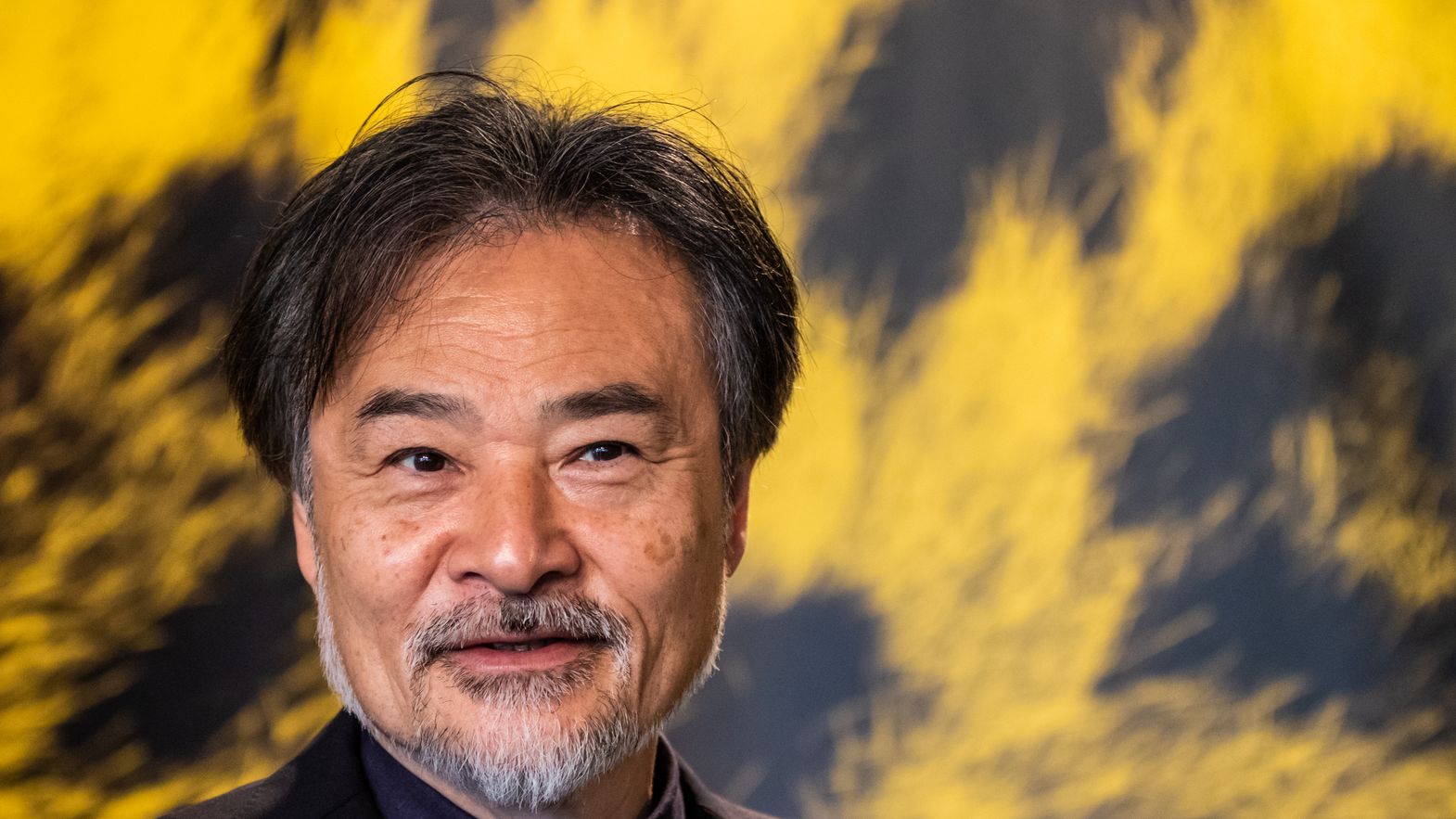
This film is almost like a more light-hearted companion piece to Seventh Code. Was that a conscious parallel?
I wasn’t aiming to create a companion piece to Seventh Code. However, when the producers approached me with the opportunity to shoot a film in Uzbekistan, the image of a young woman wandering alone in an unknown land formed in my mind. I was convinced that the best person for the role was Atsuko Maeda. Perhaps I was unconsciously stimulated by memories of Seventh Code.
Was it a deliberate choice to move away from paranormal elements, which were part of your last five films?
I like stories that suddenly inject the unknown into normal, everyday life. But since the protagonist Yoko doesn’t have an “everyday” life and the entire story is set in the unfamiliar land of Uzbekistan, I felt that including additional strange elements wasn’t necessary. Nonetheless, Yoko witnessing images of her familiar hometown of Tokyo going up in flames toward the end of the film is the type of drama I’m always interested in.
This is your third collaboration with singer-actress Atsuko Maeda. What did she bring to the role of Yoko?
For me, the appeal of Atsuko Maeda is that she doesn’t rely on relationships with others and seems to exist independently, which gives her a refined charm. I would say that’s a rare quality among young Japanese actors. She has a talent for expressing isolation in a very natural way that you don’t often see.
The film is a joint venture between Japan and Uzbekistan, both on screen and in real life. What was the experience like?
It was a fantastic experience. The Uzbek cast and crew was very professional and I was able to focus on directing the same way I do in Japan or France. Actor Adiz Radjabov, who plays the interpreter Temur, didn’t know a single word of Japanese but perfectly delivers a large amount of Japanese dialogue in the film. It seems talented actors can easily overcome barriers of language and nationality.
Part of the film satirizes show business. Did you draw on your own experiences for that?
I didn’t intend to satirize the world of TV programs. All of the depictions of the production crew you see, whether it’s film or television, is pretty much based on the on-set reality I’ve experienced. If you take my fondness for horror film productions as an example, being on the set where a cast and crew is working seriously to achieve these fantastical or bizarre scenes may appear ridiculous to a casual onlooker.
You were previously in Locarno with Real, which screened in competition. How do you feel about unveiling your new film in Piazza Grande?
It’s like a dream. I’ve seen a number of screenings in Piazza Grande as a spectator. The town, its people, and cinema become one, and it’s as if the films spread to the entire world in an instant. I never imagined the day would come that one of my own films would be selected. To be honest, I’m a bit nervous. Does my film have the power to live up to Piazza Grande? I hope that on the day of the screening, audiences in the main square of Locarno believe that it does.